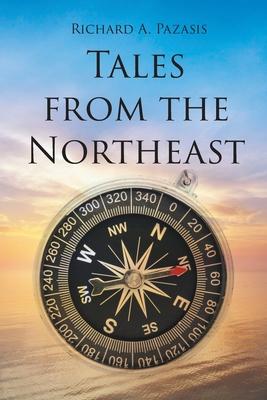Writing is finally about one thing: going into a room alone and doing it, putting words on paper that have never been in quite that way before. (William Goldman, award-winning author and screenwriter)
The northeastern section of the United States, specifically Connecticut, Maine, Massachusetts, New Hampshire, New York, Rhode Island, and Vermont, offers us some of the richest history in our nation. There is a plethora of well-known geographical areas and individuals that and who have been a significant influence on our country's great history. In addition, there are many not-so-well-known geographical areas and individuals that and who have also made such remarkable contributions.
Because of what seems to be a modern-day lack of knowledge and appreciation for our country's history, including a recent trend to erase documented records of actual historical events and statues of prominent individuals, I have decided to compose several short stories highlighting both well-known and not-so-well-known geographical areas and individuals from the northeastern section of the United States, that and who have made significant contributions to our great nation's history.
I have chosen to present such information in a fictional short story format, just as several very early American writers did, which is described within the introduction to a compendium entitled Great American Short Stories, published by the Fall River Press of New York City. According to the publisher, "Americans have been writing short stories for almost as long as Americans have been writing fiction...in which...writers strove to capture the character of their fledgling country." In addition, the publication mentioned that writers like Washington Irving, Nathaniel Hawthorne, and Edgar Allen Poe used the short story format because it "showed itself to be adaptable to a wide variety of themes and approaches that might not have been executed as well at novel length...and that found it the perfect tool for turning folklore and superstitions...into literary tall tales."
In addition, I have selected to utilize the short story format as the result of being influenced by one of our country's most prolific authors, Stephen King. Although mostly known for his novels, Stephen King felt that short stories were too much forgotten. He authored many short stories himself and stated that: "The leap of faith necessary to make the short story happen has gotten particularly tough in the last few years; these days it seems that everything wants to be a novel." He also wrote that: "A short story is a different thing altogether--a short story is like a quick kiss in the dark from a stranger." Whether or not today's readers have short attention spans, I feel that having utilized a short story structure has allowed me to present important historical facts and my thoughts in a most concise "quick kiss" format, thus enticing the public to be more inclined to read about or great nation's history. And since Stephen King also wrote that "Fiction is the truth inside the lie," all my short stories are a combination of true historical and scientific facts as well as made-up scenarios or storylines.
Finally, although the main characters and storylines in my short stories are fictional, the facts related to the geographical areas, historical individuals, and scientific facts are real.
